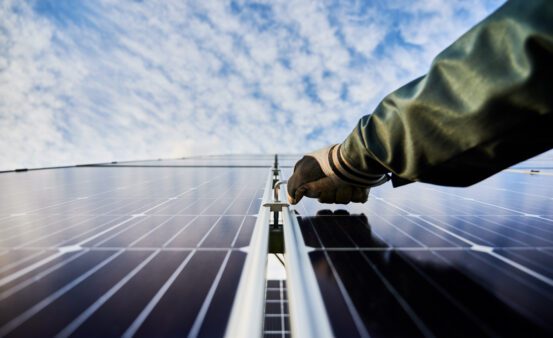5 Tips to Avoid Solar Scams

Solar panels are a great way to save money. According to the Solar Energy Industries Institute, the average U.S. homeowner could save between $800 to $4,000 a year ($70 to $300/month) on energy costs. That’s a lot of money. Before you start shopping, here are five tips to help you identify potential solar panel scams.
What are Solar Power Scams
There are plenty of honest solar panel companies out there. But as with any industry, there are also less-than-honorable companies out there looking to steal your money.
Fake solar panel companies will sell you the system but have no intention of ever delivering or installing it. This scam usually starts with a large cash deposit. In Montana, you’re required to pre-pay at most 5% of the cost of the solar panels and installation before the work is done.
Identity thieves will pose as solar experts promising government incentives. But first, they require you to fill out some paperwork that includes your Social Security number and possibly financial institution information. Legit solar power companies will not ask for your Social Security number or private financial information in order to start the project.
Watch Out for Big Promises
If someone shows up at your door promising that your electricity bill will disappear, kindly ask them to disappear. Yes, solar panels can drastically reduce energy bills, but most of the time they will not eliminate your bill. And rarely will the power company give you credit for helping add energy to the grid. Remember, if it sounds too good to be true, it likely is.
Chill Out, It’s Just Solar
A lot of people are choosing to add solar to their homes. So, yes, there will be a wait to get your solar panels installed. Criminals will use false urgency to push you into rash decisions, sign contracts quickly, and make large down payments.
Be cautious of anyone who uses the term “limited-time offer,” it could be a scammer lying to take your money. Additionally, criminals will tell you the federal tax credits are ending this year or next. That simply isn’t true. The Inflation Reduction Act is set to keep that 30% tax rebate in place until 2034.
Do Your Homework
Before you sign a contract, make sure you read it thoroughly. If you’re unsure, our Clean Energy Team will review the contract with you and help you understand the questions you should ask before signing.
As you do your homework, remember that a legitimate company will answer all your questions, spell out all the costs (including installation), ask for only 5% upfront (per Montana law), and set a schedule for delivery and installation. To verify a company’s credentials, visit the Solar Energy Industry Association and the industry licensing database.
Get Several Bids
Getting at least three bids will show you the real cost of solar panels, help you better understand the process, and teach you the right questions to avoid a scam. We have some tips for evaluating a solar contractor’s bid.
Free Panels Don’t Exist
Very few things in life are free. Anytime someone offers free solar panels, what they really mean is no money down for a solar lease program. These programs will eventually require payments, including hidden fees and charges.
Did You Find a Solar Scam?
Report it and the company trying to swindle people out of their money to the Federal Trade Commission (FTC) at ReportFraud.ftc.gov. You can also call (406) 877-FTC-HELP


